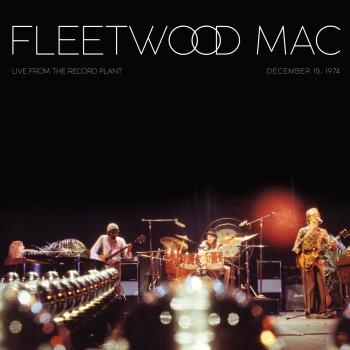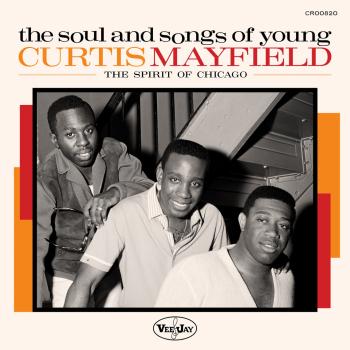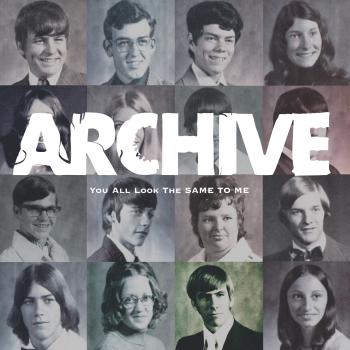
Goodies (2015 Remaster) J.J. Johnson
Album info
Album-Release:
1966
HRA-Release:
01.10.2015
Album including Album cover
I`m sorry!
Dear HIGHRESAUDIO Visitor,
due to territorial constraints and also different releases dates in each country you currently can`t purchase this album. We are updating our release dates twice a week. So, please feel free to check from time-to-time, if the album is available for your country.
We suggest, that you bookmark the album and use our Short List function.
Thank you for your understanding and patience.
Yours sincerely, HIGHRESAUDIO
- 1 Feeling Good (From The Roar of the Greasepaint--The Smell of the Crowd) 02:25
- 2 The Seventh Son 02:43
- 3 How Insensitive 02:50
- 4 Pense à moi 02:11
- 5 008 02:07
- 6 In the Name of Love 02:04
- 7 G'won Train 02:55
- 8 No Particular Place to Go 02:09
- 9 Agua de Beber 02:29
- 10 Incidental Blues 02:42
- 11 I'm All Smiles 01:55
- 12 Billy Boy 02:52
Info for Goodies (2015 Remaster)
One of the lesser-known JJ Johnson albums of the mid 60s – and nice little session that's done with a fresh sort of style! The album's got JJ playing mostly with larger arrangements – penned by Dick Hyman, Slide Hampton, and Billy Byaers – in modes that range from upbeat, mod, and swinging – to mellow, lush, and soulful. A few cuts have vocalists – like the lovely Marlene Ver Planck, who sings wordlessly on the album's amazing groover 'Pense A Moi' – a sweetly skipping jazz waltz that's almost worth the price of the record alone! Marlene returns on a great version of 'Agua De Beber', and Osie Johnson sings on versions of 'The Seventh Son' and 'In The Name Of Love' – and other nice tracks include '008', 'Feeling Good', and 'G'Won Train'.
„Goodies captures J.J. Johnson's mid-'60s big band in full gallop. Paired with arrangers Dick Hyman, Slide Hampton and Billy Byers, the music marries the nimble grooves of soul-jazz with the big, bold sensibilities of swing to stunning effect. Mastering adrenaline and atmosphere with equal aplomb, the music shifts effortlessly from powder keg dance melodies to lush, luminous ballads, complete with vocal contributions from Osie Johnson and Marlene Ver Planck. The latter's wordless turn on the stunning 'Pense a Moi' is the album's unequivocal highlight. A little-known but rewarding session most easily obtained via the Lonehill label's two-disc The Complete '60s Big Band Recordings set.“ (Jason Ankeny, AMG)
Clark Terry, trumpet, flugelhorn
J.J. Johnson, trombone
Alan Ralph, trombone
Tony Studd, trombone
Ray Sterling, mellophonium
Jerome Richardson, saxophone
Phil Bodner, saxophone
Romeo Penque, saxophone
Danny Bank, saxophone
Recorded in New York City, 1965
Digitally remastered
J.J. Johnson
was born James Louis in Indianapolis on January 22, 1924. At the age of 9, he studied piano with a church organist and became very interested in music during his second year at Crispus Attucks High School. The only school instrument available to him at the time was a baritone saxophone. J.J. played this instrument for a very short time and, at the age of fourteen, picked up the trombone, playing in the high school band as well as the brass marching band of the YMCA.
By the time he was eighteen, J.J. left home to play with Snookum Russel's band, of which Fats Navarro was also a member. He went on to play with other legendary jazzers Benny Carter (from '42-5), Count Basie (from '45-6), and Illinois Jacquet (from '47-9). The earliest recordings of J.J. are with the Benny Carter Orchestra, although he functioned only as a section player. Johnson's first recorded solo, only twelve measures long, was with this group on the Capitol label on the track Love for Sale.
In 1944, he played at the very first concert of Jazz at the Philharmonic. J.J.'s fluid style and rapid fire technique on the trombone soon gained him notoriety. His technique on slide trombone was so clean, in fact, that most people at the time swore he was playing valve trombone. J.J. has stated that his '. . . original influences were Pres and Roy, then Diz and Bird'.
In October of 1951, J.J. joined an all-star sextet led by bassist Oscar Pettiford for a USO tour of Korea, Japan, and Southern Pacific islands. However, this group encountered internal problems that resulted in Pettiford leaving the tour early to return to the United States. In 1953, J.J. left the music business to work as a blueprint inspector for Sperry Gyroscope, performing only occasionally. On April 20th, he recorded for Blue Note with the Miles Davis sextet on the titles Tempus Fugit, Ray's Idea, C.T.A., and Johnson's own compositions Kelo and Enigma. It wasn't until the next year, 1954, that he quit his job at Sperry Gyroscope and started playing with fellow trombonist, Kai Winding. This led to the formation of the Jay & Kai group, which stayed together for the next couple years and enjoyed critical acclaim.
The New York Classical Jazz and Classical Music Society comissioned J.J. to compose a piece for solo brass instruments and brass ensemble. This resulted in his piece Poem for Brass, which was recorded in October of 1956. According to Schuller, this music was 'third stream', his term for music that combined the jazz and classical idioms.
Late 1959 saw J.J. reorganizing his sextet, keeping prior members Cedar Walton on piano, Albert Heath on drums, and Clifford Jordan on saxophone. To this, he added Freddie Hubbard on trumpet and Arthur Harper on bass. After working steadily for nine months, the group recorded one of J.J.'s best albums, J.J. Inc. This album included seven original tunes- Shutterbug, Fatback, Aquarius, In Walked Horace, Minor Mist, Mohawk, and Turnpike (this was not issued on the original vinyl album, but was included when the album was re-released on CD in 1998).
J.J. disbanded the sextet in September of 1960 so he could work on his compositional skills. From this month on to March 1961, he worked on a composition entitled Perceptions, written for orchestra and comissioned by Dizzy Gillespie. The six-part work was recorded on May 22, 1961 with a large orchestra under the direction of Gunther Schuller. Schuller had this to say about J.J.:
'His compositional abilities and his range of expressions . . . have expanded with each new work through the years. Beyond all externals of form and technique, this music combines an eloquent musical imagination with a strongly disciplined mind, producing an enjoyable music of depth, pulsating warmth and infectious spirit' Johnson spent a year on the road with the Miles Davis sextet. In July of 1964, he joined the Radio Corporation of America's roster of musicians and toured Japan with a sextet including Clark Terry and Sonny Stitt. In 1968, J.J. was comissioned by Robert A. Boudreau, Music Director of the American Wind Symphony Orchestra, located in Pittsburgh, Pennsylvania. The resulting piece was Diversions for Six Trombones, Celeste, Harp, and Percussion.
J.J. moved from New York to L.A. in 1970 to write music for movies and television. Some of his first work was a little orchestration work for The Adventurers and composing music for Barefoot in the Park. He was later assigned to write music for four popular television shows, Mayberry R.F.D., The Danny Thomas Show, That Girl, and The Mod Squad. His movie credits (either orchestrating or writing the music) include Man and Boy, Top of the Heap, Across 110th Street, Cleopatra Jones, and Shaft. Oddly enough, J.J. was winning polls as the best jazz trombonist at this time, even though he wasn't actively playing.
Around the time he was recording for Antilles, he and his wife, Vivian, moved to his hometown Indianapolis. Sadly, several years later, Vivian passed away. J.J. dedicated an album to her, simply entitled Vivian. Eventually, J.J. started performing more frequently for the public. In 1988, he played the Village Vanguard in New York, where Slide Hampton made his way onstage and presented him with a scroll signed by many grateful trombonists in show of their gratitude for his contribution to jazz.
In the June 1997 issue of Downbeat magazine, J.J. announced his retirement from live performances. The next few years were spent in his hometown of Indianapolis, IN, composing works on his Macintosh Quadra and occassionally offering input to the J.J. Johnson Mailing List. A book also came out written by Joshua Berret and Louis Bourgois III entitled The Muscical World of J.J. Johnson.
Tragedy struck the jazz and trombone community when on February 4, 2001, J.J. Johnson passed away. Only now are we able to see the number of lives that he has touched in a positive manner. In addition, J.J.'s legacy will continue to inspire new trombonists.
This album contains no booklet.









